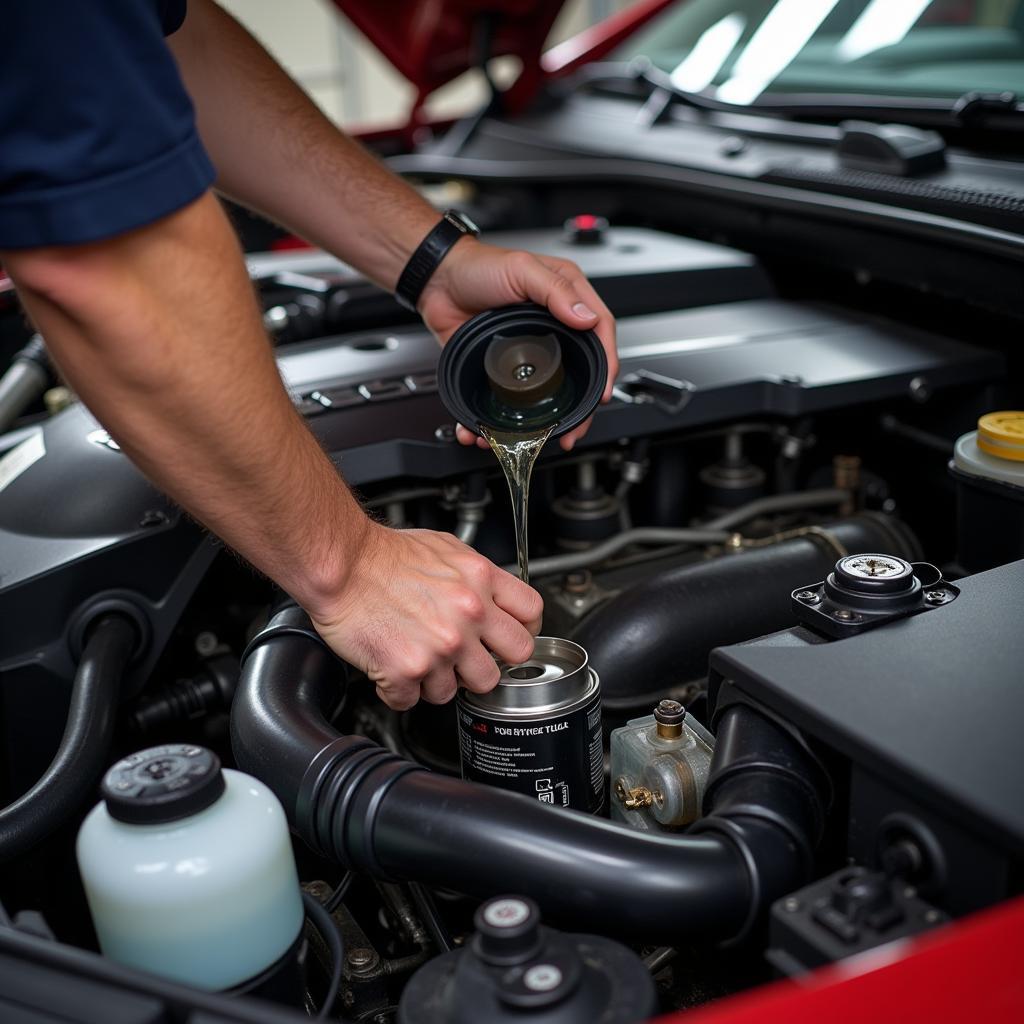Turbocharged cars offer exhilarating performance, but that extra boost comes with added responsibility. Knowing What Extra Maintenance You Need With A Turbo Car is crucial for its longevity and continued thrilling performance. This article will dive deep into the specific care your turbocharged engine requires to keep it running smoothly for years to come.
Maintaining a turbocharged engine does require a bit more attention compared to a naturally aspirated engine. Understanding these requirements will not only save you money in the long run but also ensure you continue to enjoy the performance benefits of your turbo. Let’s explore the key maintenance areas.
Essential Turbo Car Maintenance Tips
Turbocharged cars, while offering exciting performance, demand specific care. Here’s a breakdown of the extra TLC your turbocharged engine needs:
Oil Changes: The Lifeblood of Your Turbo
Regular oil changes are paramount for any car, but even more so for turbocharged engines. The turbocharger operates at extremely high temperatures, and the oil is vital for cooling and lubrication. Using high-quality synthetic oil designed for turbocharged engines is highly recommended. [do turbo cars require more maintenance](https://autotippro.com/do-turbo-cars-require-more maintenance/) Skipping oil changes or using the wrong type of oil can lead to premature turbo failure, a costly repair you’ll want to avoid.
- Use high-quality synthetic oil.
- Adhere to the manufacturer’s recommended oil change intervals.
- Consider more frequent oil changes if you drive aggressively or in extreme conditions.
 Turbocharged Engine Oil Change
Turbocharged Engine Oil Change
Cooling Down After a Spirited Drive
After putting your turbo through its paces, resist the urge to shut the engine off immediately. Allowing the engine to idle for a minute or two allows the turbocharger to cool down gradually, preventing oil coking and potential damage. This is especially important after extended high-speed driving or heavy loads.
Why is this necessary? The turbo spins at incredibly high speeds, and suddenly cutting off the oil supply can cause the remaining oil to overheat and solidify, potentially damaging the bearings.
Regular Inspections: Catching Issues Early
Regular inspections are crucial for identifying potential problems before they escalate. Check for leaks, unusual noises, and any signs of wear and tear. A professional mechanic specializing in turbocharged engines can perform a thorough inspection and identify any issues that require attention. car turbo maintenance Early detection can save you from expensive repairs down the line.
Air Filters: Keeping the Flow Clean
A clean air filter is essential for optimal turbo performance. A clogged filter restricts airflow, forcing the turbo to work harder and increasing the risk of damage. Replace your air filter as recommended by the manufacturer or more frequently if you drive in dusty or polluted environments.
“Regular maintenance isn’t just about preventing problems; it’s about maximizing the performance and lifespan of your turbocharged engine,” says John Miller, a seasoned automotive engineer with over 20 years of experience.
What Happens if You Don’t Maintain Your Turbo?
Neglecting turbo maintenance can lead to a range of issues, from decreased performance and fuel efficiency to catastrophic turbo failure. A seized turbo can damage other engine components, leading to a hefty repair bill. regular average maintenance cost of cars Investing in preventative maintenance is a much wiser choice.
Paying Attention to Warning Signs
Be vigilant and address any unusual noises, excessive smoke, or performance issues promptly. Ignoring these warning signs can exacerbate the problem and lead to more costly repairs. “Addressing issues early is key to preventing major problems with your turbo,” advises Sarah Chen, a certified mechanic specializing in high-performance vehicles.
Conclusion
Understanding what extra maintenance you need with a turbo car is crucial for its longevity and performance. By following these essential tips and being proactive with maintenance, you can enjoy the thrill of your turbocharged engine for years to come. Don’t hesitate to contact us at AutoTipPro for any assistance or further information. You can reach us at +1 (641) 206-8880 or visit our office at 500 N St Mary’s St, San Antonio, TX 78205, United States. high maintenance cars list We’re here to help you keep your turbo spinning smoothly!
Do you have any other questions or concerns about maintaining your turbocharged car? We’re here to help!
FAQ:
- How often should I change the oil in my turbo car? Follow the manufacturer’s recommendations, but consider more frequent changes if you drive aggressively.
- What kind of oil should I use in my turbocharged engine? High-quality synthetic oil designed for turbocharged engines is essential.
- Why is it important to let my turbo cool down after driving? This prevents oil coking and potential damage to the turbocharger.
- What are some signs that my turbo might be failing? Unusual noises, excessive smoke, decreased performance, and a check engine light are all potential indicators.
- Is maintaining a turbo car significantly more expensive than a regular car? Not necessarily, but it does require more attention to specific maintenance procedures. maintenance cost car per year porche Preventative maintenance can save you money in the long run.
- Can I perform turbo maintenance myself? Some tasks, like checking for leaks, can be done yourself. However, more complex procedures are best left to a qualified mechanic.
- Where can I find a mechanic specializing in turbocharged engines? Ask for recommendations from car enthusiasts or search online for reputable shops in your area.







Leave a Reply